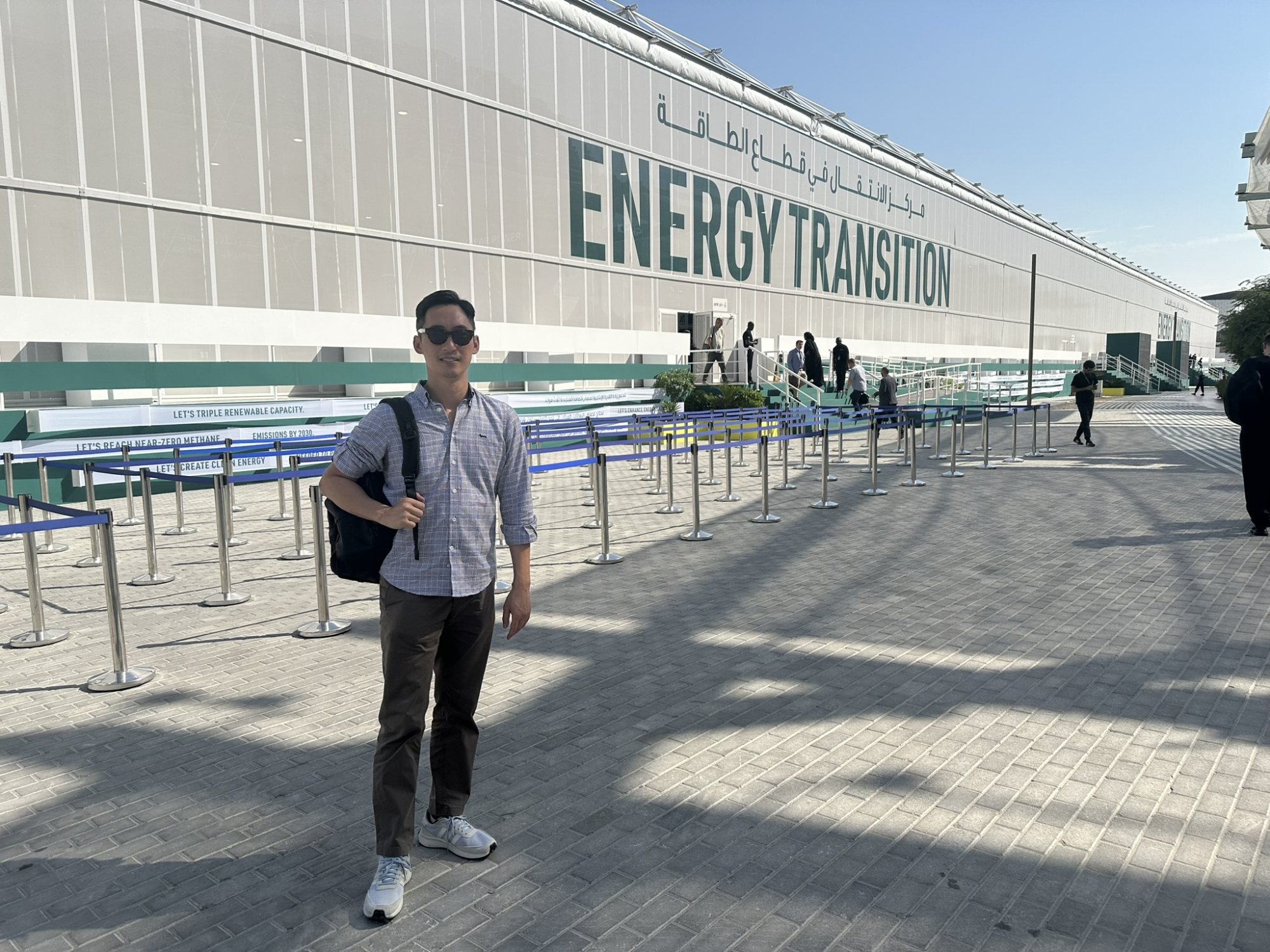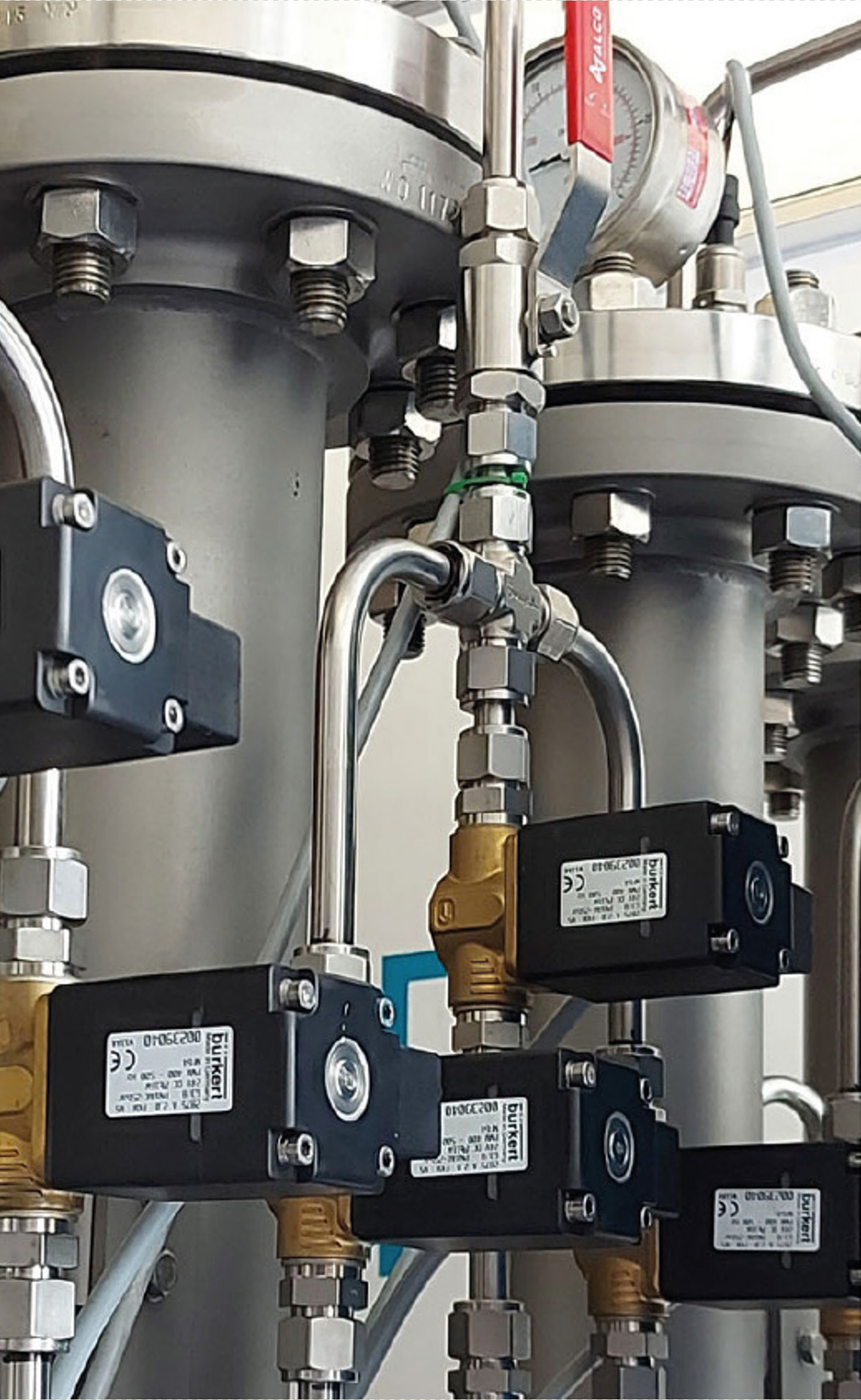An environmentally friendly building materials entrepreneur is bringing carbon capture and utilisation technology to Hong Kong with the aim of helping the construction industry reduce its emissions.
Founded in 2022, Hong Kong-based CS Tech Solution is working in its research-and-development centre in Tuen Mun to not only capture carbon emissions on site from chimneys, but also to permanently store it in construction materials, a first in the city, its co-founder and CEO, Dixon Chan, said in an interview.
“We would like to produce something that is low carbon and provide [it] to the Hong Kong construction industry,” Chan said. “That is why we came up with the idea to do carbon-capture utilisation.”
Chan founded Tiostone Environmental Limited in Hong Kong, a building materials supplier providing environmentally friendly precast concrete products made with recycled aggregates and glass to local developers and the construction industry, in 2008.
The captured carbon dioxide from CS Tech can be used in Tiostone’s products and provided to other construction industry players, Chan said. “I don’t think one single technology can achieve net zero or carbon neutrality, so we need different technology [and] concepts to work together to achieve net zero,” he added.

Tiostone will adopt CS Tech’s system to produce low-carbon-intensity precast concrete products, which are expected to be launched in the market in the second quarter of 2024.
CS Tech’s work is significant because the construction and operation of buildings accounts for around 14.4 metric gigatons of carbon-dioxide equivalent of emissions annually, or 26 per cent of total greenhouse gas emissions globally, according to consultant McKinsey’s “Building value by decarbonising the built environment” report released in June. It is also responsible for 37 per cent of emissions related to fuel consumption.
And towards the middle of the century, as the world’s population approaches 10 billion people, the building stock globally is expected to double in size, according to the World Green Building Council (WGBC). “Carbon emissions released before the built asset is used, what is referred to as ‘upfront carbon’, will be responsible for half of the entire carbon footprint of new construction between now and 2050, threatening to consume a large part of our remaining carbon budget,” WGBC said on its website.
Can carbon capture and storage technologies fight climate change?
Can carbon capture and storage technologies fight climate change?
CS Tech has partnered with Aberdeen, Scotland-based CCU International to design its first carbon-capture system, which has been manufactured in Europe as part of a pilot project. It can capture one tonne of carbon dioxide per day and is expected to be delivered to Hong Kong in the first or second quarter of 2024.
The company claims to be different from other producers of sustainable construction materials that store carbon dioxide because it can capture emissions from flue-gas stacks or chimneys on local sites, rather than buying the carbon dioxide that is injected into the material from vendors.
“We will demonstrate how to utilise the carbon dioxide in Hong Kong in construction materials first, and then we will expand that into maybe dried ice or [for use in the] carbonated drinks industry,” Chan said.

The company has raised US$2 million in seed funding from firms in heavy-duty industries such as logistics, construction and materials that want to buy carbon credits to offset their emissions. It has also received enquiries from mining companies in Indonesia and Brazil for the capture of 80 tonnes of carbon-dioxide emissions per day.
“With this system and concept we can provide [companies] with a solution to help them get closer to their net-zero goal,” Chan said.

